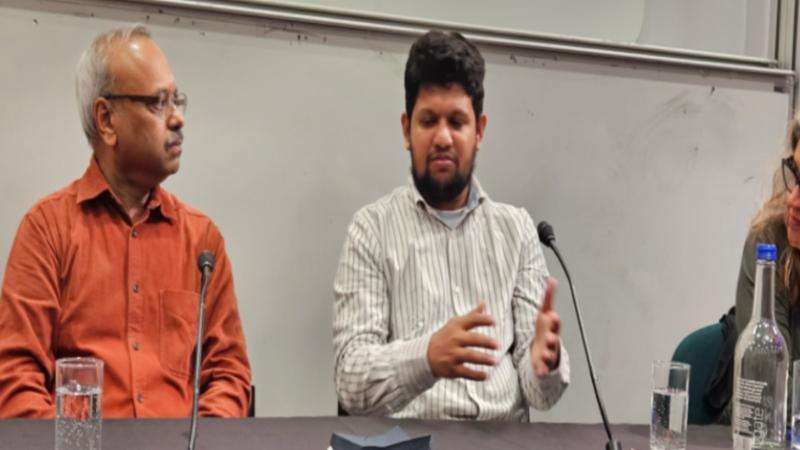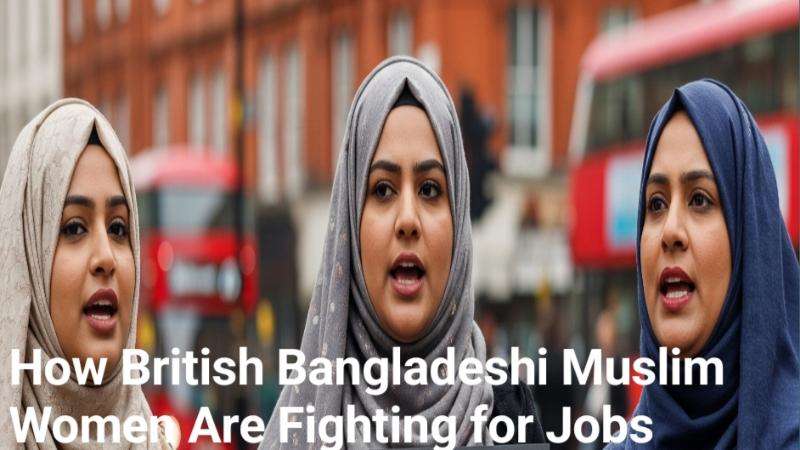The United Kingdom is facing a deepening youth unemployment crisis, driven by a sharp rise in young women who are not in employment, education, or training (NEETs). According to the Office for National Statistics (ONS), the total number of NEETs has risen to nearly 950,000, with a significant portion of this increase attributed to female joblessness.
A Breakdown by Demographics-While young men still make up the largest share of NEETs at 497,000, their numbers have slightly declined. In contrast, the number of female NEETs has climbed to 450,000, the highest recorded figure since 2016. The majority of these young women are considered "economically inactive," meaning they are neither working nor actively seeking employment or training, highlighting complex underlying issues.
The broader unemployment landscape reveals a concerning picture for various communities. The unemployment rate for people from a BAME (Black, Asian, and Minority Ethnic) background is significantly higher than for their white counterparts. Data indicates persistent inequalities, particularly for specific groups. For example, individuals from British Pakistani and British Bangladeshi communities face some of the highest rates of unemployment, Daily Dazzling Dawn understands.
Analysis of religious groups also shows notable disparities. The Muslim community has a particularly low employment rate compared to other faith groups. This is partly linked to higher levels of economic inactivity, especially among Muslim women, and is often attributed to a combination of cultural factors, family caring duties, and challenges like discrimination in the job market.
The Causes and Political Fallout-Experts and politicians have offered different explanations for these trends. Barry Fletcher, CEO of the Youth Futures Foundation, points to structural barriers, such as caring responsibilities, which may disproportionately affect young women and contribute to their economic inactivity. For young men, some commentators, including shadow chancellor Mel Stride, have cited the influence of online culture, such as gaming and pornography, as a factor drawing them away from the workforce.
The Federation of Small Businesses (FSB) has called for targeted government support, including schemes to help young people become entrepreneurs and subsidized work experience for those at risk of becoming NEETs. Liz Kendall, the Work and Pensions Secretary, has responded with a £45 million funding increase for the Youth Guarantee scheme, aiming to get more young people into education and training.
According to the Office for National Statistics (ONS) Census 2021 data, the employment rate for Muslims in England and Wales was 51.4%, significantly below the overall national average of 70.9%. This gap is even more pronounced for Muslim women, who have the lowest labor market participation of any major group. Many are classified as "economically inactive," with a substantial number citing reasons such as "looking after home and family," a rate that is notably higher than the national average for women.
Research suggests that even after accounting for factors like education and qualifications, a significant gap in employment outcomes remains. This is often referred to as the "Muslim penalty," indicating that individuals from the community are less likely to be employed than their non-Muslim peers with similar backgrounds. This suggests that discrimination and Islamophobia are key barriers in the hiring process. Studies have shown that job applicants with Muslim-sounding names are less likely to receive interview offers. Additionally, Muslim women who wear a headscarf report facing a compounded form of discrimination.
However, political tensions remain high. The shadow chancellor, Mel Stride, has criticised the current government, claiming that rising taxes are damaging job prospects and that the administration has "utterly failed" to reform the welfare system to help young people into work. As the UK economy continues to navigate a challenging period, the fate of its youngest and most vulnerable workers remains a key point of public and political debate.


_3.jpg)
_2.jpg)




.svg)
